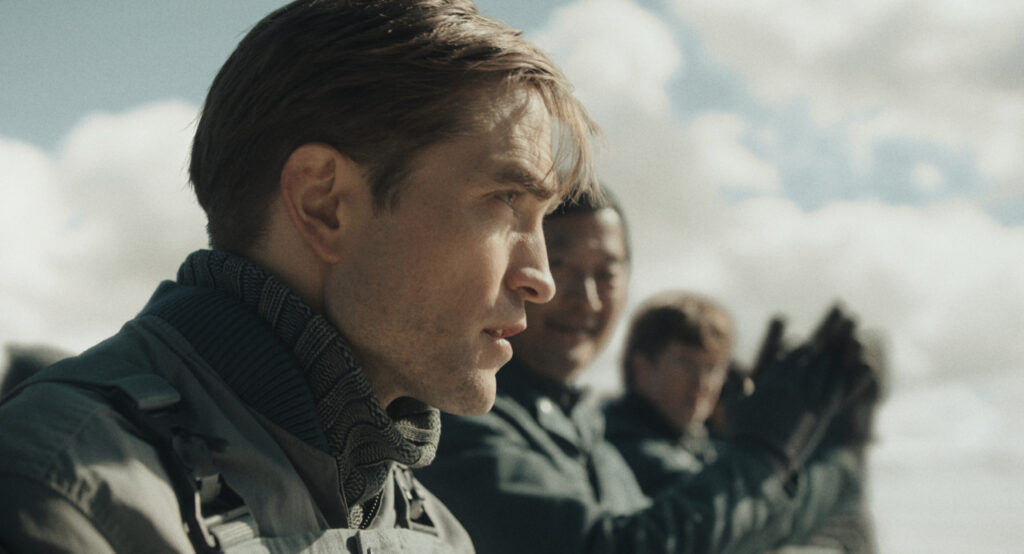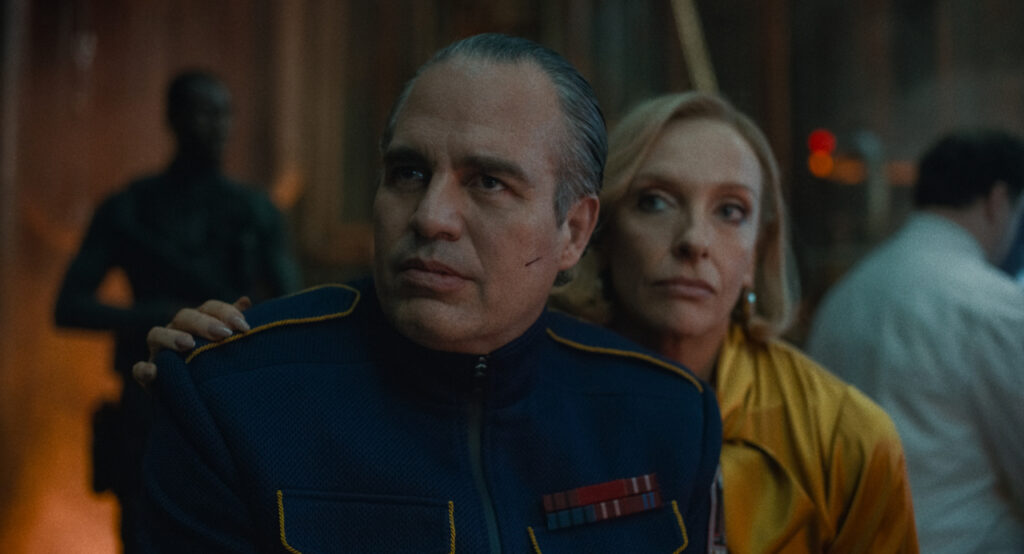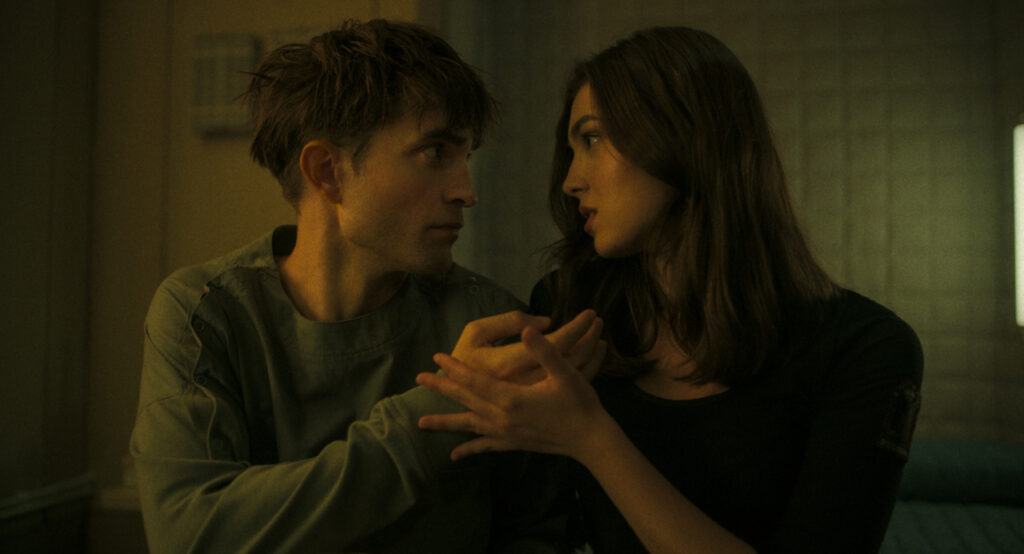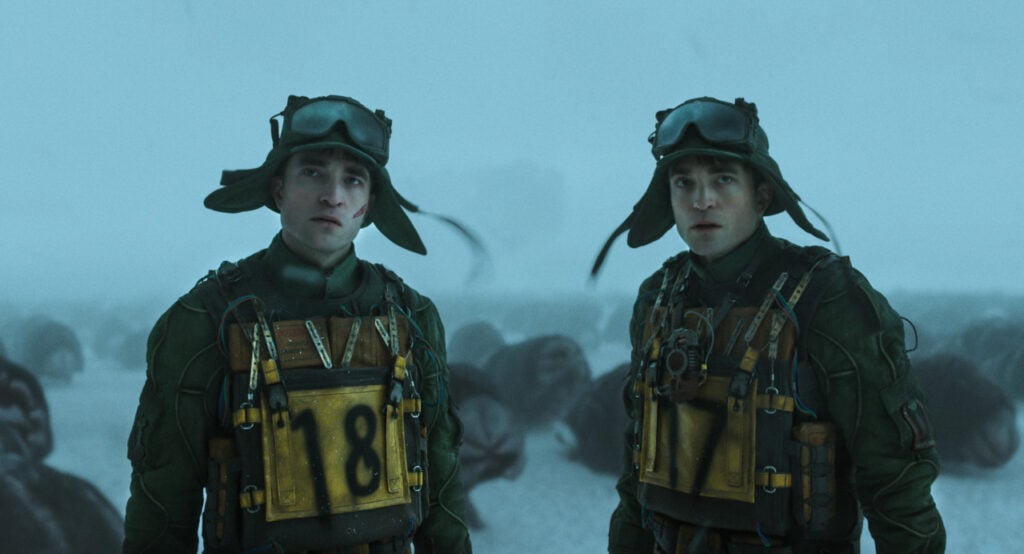Robert Pattinson is a weirdo (complimentary).
The current phase of Pattinson’s career has been shaped by films and performances that toy with, if not outright eviscerate, the aesthetics of his heartthrob era (the Cedric Diggory and Edward Cullen of it all). He has worked with filmmakers who understand the thrilling opportunities that arise from subverting the expectations of a well-known persona. His intent has carried Pattinson across the cinematic spectrum, from the monochrome historical horror of Robert Eggers’ The Lighthouse, to the Gotham grime of Matt Reeves’ The Batman, and even the animated philosophical tapestries of Hayao Miyazaki’s The Boy and the Heron. Even when the films don’t quite work (like The Devil All the Time), Pattinson’s full-throated embrace of the unconventional and all its permutations have yielded remarkable, career-redefining results.
In that context, Pattinson may have no better collaborator than Bong Joon-ho. The South Korean filmmaker is a steward of the quixotic, especially in deconstructing the sociopolitical crises of our times. As did 2019’s Oscar-winning cultural juggernaut Parasite, Mickey 17 aims at the ills of late-stage capitalism through the eyes of Pattinson’s Mickey Barnes. Seeking to hide from a loan shark, Mickey joins a space colonization mission to Nilfheim, organized by Kenneth Marshall (Mark Ruffalo), a failed, megalomaniacal politician with a rabid fanbase. Mickey becomes an “Expendable,” someone who is repeatedly killed and brought back to life via cloning technology so they can explore and assess Nilfheim. Mickey’s 17th iteration (the titular one) is meant to die after another failed expedition, but survives and meets his replacement, Mickey 18. Knowing that, as “multiples,” both Mickeys will be killed, the two must work together to survive and take down Marshall.

Mickey is poised to become one of the year’s most memorable film characters, thanks to the brilliant, astute pairing of director and star. It all starts with his unforgettable voice. Pattinson speaks with a heavily-accented Northeastern accent that is both hilarious and surprisingly profound in conveying a lifetime of apologies for taking up space. Pattison extends that approach to his physicality, whether sitting awkwardly at a lunch table or crash-landing into a garish glass side table. He crafts Mickey 18 with as much care, reflecting a reckless menace in his eyes and tone. Distinct as the multiples are, Pattinson unites them with a steady resolve that informs their choices, even if their means vary wildly. He goes balls-to-the-wall nuts here, fearlessly taking everything Bong throws at him with gleeful, exhilarating hunger. Pattinson is ferociously entertaining but disciplined, avoiding one-note caricature by retaining a gentle humanity beneath the pitiful resignation.
Pattinson’s discipline is critical because Bong Joon-ho unleashes a narrative and thematic tidal wave at him. Mickey 17 is the filmmaker at the height of his idiosyncratic powers, wielding his film like a sledgehammer and smashing through the callousness and ineptitude of unchecked capitalism and cults of personality. Like his direction of Pattinson, Bong isn’t coy in his observations about his film’s cruel, careless world. He constantly and hilariously reinforces ephemerality when greed and ego are paramount through a gaggle of delightfully absurd visuals and biting dialogue. Mickey, as a strict commodity, bears the brunt of them. One recurring gag leaves Mickey dangling from the shoddy reprinting machine while scientists treat him with microscopic regard. Several people, including his childhood friend Timo (Steven Yuen), ask him what constantly dying is like, oblivious or deliberately ignoring his discomfort. The satire is relentless, blatant, shameless, and wildly entertaining.

What also helps the satire land is its breadth and Bong’s expansive worldbuilding. Rather than focusing on a singular idea about this hyper-capitalistic, technologically advanced world, he tackles virtually all of them. Nothing is left on the table: government bureaucracy’s pratfalls, evangelism’s silly exploitation, fame’s desperate allure, the lifestyle influencer ecosystem, colonization, and even the sexual ethics of cloning. Even the most skilled filmmakers may at least buckle under the weight. However, Bong balances them well by weaving them through and around the driving narrative without pulling focus. Seeing Marshall’s wife Ylfa (Toni Collette) sing a ridiculous church hymn at dinner and the ship’s governing body debate in Hogwarts attire adds meaningful color to this absurd universe. It codifies the meaningless performance that allows the blatantly inept Marshall to hoodwink a spaceship of people to enact his egomaniacal bidding. The film feels alive, vibrant and eerily prescient of current events.
Amidst the chaotic satire are Bong’s thoughtful explorations of what it means to be human. It primarily manifests in Mickey’s sweet, passionate relationship with Nasha (Naomi Ackie). She’s one of the very few who treat Mickey like someone and not something, inspiring deep devotion from him. It’s easy to see why: Ackie is forceful on screen, equally capable as Pattinson in adapting to and thriving in Bong’s quick-hit tonal shifts. The two have great chemistry together, creating potent comedic and romantic sparks. Their scenes are among the few times Bong retreats from the satire to allow their affirming love story to bloom. It’s also a gentle but powerful counterpoint to Marshall’s empty hubris, with their sex scene intercut with his speechifying on the ship. Other fleeting moments reinforce Mickey’s humanity, and they’re all startling and moving, feeding a sweet undercurrent through the comically charged atmosphere.

That charged atmosphere might be a significant adjustment for audiences coming to this film with Parasite as their only frame of reference. The same can be said for those who prefer a tighter focus in their Bong Joon-ho projects. There is little constraint here. Everything, from Mark Ruffalo’s extremist Musk-ian performance to the giant scurrying alien inhabitants, is dialed to the max. Every cast and crew member is on Bong’s wavelength, and he also asks audiences to meet him there. Whatever one’s appetite, Mickey 17 is well worth the expedition, as Bong assures that, at the very least, you are never disengaged with the cavalcade of shenanigans he pumps into your eyeballs. It’s an “everything and the kitchen sink” journey that yields riotous and remarkable results. If you need a further co-sign, just look to Robert Pattinson, whose faith in Bong has led to the greatest performance of his career.

Whatever one’s appetite, Mickey 17 is well worth the expedition, as Bong assures that, at the very least, you are never disengaged with the cavalcade of shenanigans he pumps into your eyeballs. It’s an “everything and the kitchen sink” journey that yields riotous and remarkable results. If you need a further co-sign, just look to Robert Pattinson, whose faith in Bong has led to the greatest performance of his career.
-
9
-
User Ratings (1 Votes)
8
A late-stage millennial lover of most things related to pop culture. Becomes irrationally irritated by Oscar predictions that don’t come true.






